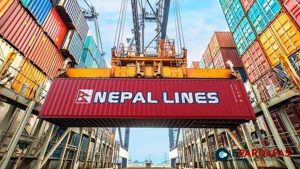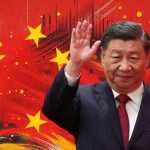
Canada to Impose 100% Tariff on Chinese Electric Vehicles, Targets Steel and Aluminum Imports

In a decisive move following the United States and European Union, Canada announced on Monday that it will impose a 100% tariff on imports of Chinese electric vehicles (EVs) and a 25% tariff on imported steel and aluminum from China. The new tariffs, set to take effect on October 1, are part of Ottawa’s broader strategy to counter China’s state-directed policies, which Prime Minister Justin Trudeau described as fostering overcapacity and unfair market practices.
The sweeping duties will impact all EVs shipped from China to Canada, including those produced by Tesla, whose Shanghai-made vehicles have seen a significant increase in exports to Canada. In 2023, Canadian imports of automobiles from China surged by 460% year-over-year, with 44,356 vehicles entering through Vancouver, largely due to Tesla’s shipments.
Shares of Tesla, the world’s most valuable automaker, dropped 3.2% following the announcement, reflecting market concerns over the potential impact of the tariffs on the company’s operations.
Trudeau Defends the Move
Prime Minister Trudeau, speaking during a closed-door cabinet meeting in Halifax, Nova Scotia, emphasized that Canada’s actions align with similar measures taken by other global economies, particularly the U.S. and EU. “I think we all know that China is not playing by the same rules,” Trudeau stated, underscoring the need for coordinated international action.
The Chinese embassy in Canada swiftly condemned the tariffs, labeling them as “protectionist” and a “politically dominant act” that violates World Trade Organization (WTO) rules. The embassy warned that these measures would damage economic and trade relations between the two countries and negatively impact Canadian consumers and businesses.
Impact on Tesla and Global EV Supply Chains
The Canadian government official confirmed that the 100% tariff applies to all Chinese-made EVs, but if manufacturers relocate their production to other countries, those vehicles would not be subject to the tariff. Tesla has not commented on the development, but analysts suggest that the company might shift its export logistics, potentially rerouting vehicles from its U.S. production base to Canada to mitigate the impact.
Seth Goldstein, an equity strategist at Morningstar, noted that Tesla’s share price decline could be attributed to market concerns over the potential profit impact if the company is forced to rely more on its higher-cost U.S. manufacturing facilities for Canadian exports.
The EU recently imposed its own tariffs on Chinese-imported EVs, setting a lower rate of 9% for Tesla compared to up to 36.3% for other Chinese EV imports. This move may have influenced Canada’s decision to impose similar measures.
Broader Economic and Trade Implications
Ottawa’s decision is part of a larger effort to position Canada as a key player in the global EV supply chain, a strategy that has gained momentum through multi-billion-dollar deals with top European automakers. Trudeau indicated that Canada is considering additional punitive measures, including tariffs on Chinese-made chips and solar cells, but did not provide further details.
China, which imports significant quantities of petroleum, rapeseed, iron ore, and non-monetary gold from Canada, could retaliate by targeting these sectors, as it has done with the EU in the past. However, Canada is not a major exporter of steel and aluminum to China, potentially limiting the direct impact of China’s countermeasures.
The move follows similar actions by the U.S., where President Joe Biden announced in May a series of tariffs targeting Chinese electric vehicles, semiconductors, solar cells, lithium-ion batteries, and other strategic goods. The implementation of these U.S. tariffs has been delayed until September, with potential adjustments expected this week.
Flavio Volpe, president of the Automotive Parts Manufacturers’ Association, expressed support for the tariffs, stating, “We feel vindicated and motivated. Let’s now get to the business of defending our market with the best of Canadian innovation and resolve.”
As Canada continues to align its trade policies with its allies, the global landscape for EVs and related industries is poised for significant shifts, with potential ripple effects across international markets.












Comments